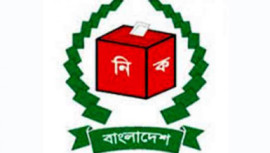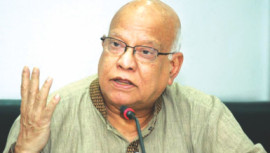Social media users may have to be more cautious about making unlawful public remarks or even sharing contentious items as it would soon be only a matter of hours for police to trace their origin with the help of special software.
A specialised police unit, expected to start operations in a few months, will be equipped with the software named open source intelligence (OSINT) to mine any remarks or postings that are defamatory, can hurt religious sentiment and can constitute an offence under the ICT Act, police officials said.
The 505-man full-fledged specialised unit -- Cyber Crime Investigation Bureau -- has already been approved by the home ministry while the import of the OSINT is in the pipeline, the officials added.
“The OSINT is definitely a useful software to help police find out cyber offenders as it can monitor the wide cyber world database in a short time,” Alimuzzaman, deputy commissioner of Social Media Monitoring and Cyber Security division of the DMP, told The Daily Star on Friday.
Presently, police search contentious items online manually. With OSINT, a search with the word “Bangladesh”, for example, will bring on the screen all the social media posts or remarks about Bangladesh.
The search results can be narrowed down by changing the key words in the search box.
However, rights activists are worried about its misuse and warned that the software might be used to control social media use in the name of monitoring ahead of the election.
“It will come in the way of logical discussions and curb freedom of expression,” said Nur Khan Liton, a noted human rights activists.
People having different opinions and opposing political views may well be the primary victims, he cautioned.
“As misuse of the law exists in the country, there is scope of misusing the system by law enforcer. We have already seen that common people, journalists, human rights activists and politicians had to pay dearly because of the misuse of section 57 of the ICT law,” he said.
The OSINT is a data mining tool, used to collect data from publicly available source like research, newspaper, social sites or internet and gather desired intelligence, said Sumon Ahmed Sabir, chief strategy officer of Fibre@Home, an international internet gateway firm.
“It has both positive and negative sides. It depends on the users to what end it will be used,” he said, adding many countries use the software to make policy decisions after analysing the public discourse.
In a recent order, the home ministry said the cyber bureau was formed to effectively deal with the growing number of cyber and pornography-related crimes.
According to the police headquarters, around 1,417 cases were filed under the ICT act against 2,873 people in the last five years. Of them, 19 were filed in 2012, 48 in 2013, 149 in 2014, 303 in 2015, 546 in 2016 and 352 till June 30, 2017.
As investigators lack expertise in cyber crime, they often fail to produce evidence to prove the crime, resulting in the acquittal of accused in 65 percent cases, according to Nazrul Islam Shamim, public prosecutor of the Cyber Tribunal.
A dedicated police unit for investigating ICT cases may ensure punishment in 75 to 80 percent cases, ultimately reducing the crime rate, he added.
Under the ICT Act, police either press charges or submit final report to the Cyber Tribunal in Dhaka, the lone tribunal to deal with these cases, after investigation.
The tribunal received 763 charge sheets till July 30 last year since 2013, when the act was amended with provisions for harsher punishment, a tribunal source said.
Ninety percent of the cases were filed under section 57, the source said.
Of the 763 cases, 205 have so far been disposed of. Among the 205 cases, 84 were disposed of after trial while the rest were disposed of either after getting final reports or were withdrawn by the plaintiffs.
The PHQ sent a proposal to the home ministry for a 575-member specialised cyber bureau on March 30 last year.
Farooque Ahmed, assistant inspector general (organisation and management) of the PHQ recently said on Thursday that the proposal was now with the public administration ministry after the home ministry gave approval for a 505-memebr unit.
“We hope that the bureau will start operating within the next three to four months as it needs finance ministry's approval after clearance from the public administration ministry,” he said.
The unit will investigate crimes like hacking of Facebook and twitter accounts, spreading nude pictures or videos on websites, hacking online bank accounts, using abusive words on the internet, comments hurting religious sentiments and other offences using online platforms.
Saheli Ferdous, assistant inspector general of the PHQ, said that in the past they had no expert officials and sufficient logistic supports to investigate the cases under ICT act. But the newly formed unit will be able to overcome the limitation.
At the moment, DMP's 70-member cyber security division is dedicated to deal with cyber cases. The detective branch also investigates cyber-related incidents on a small scale.
Around 246 cases were filed with 49 police stations of the DMP under the ICT and pornography act in 2017. The cyber unit was tasked with handling 76 of those cases. So far, it has completed investigation of 28.



































